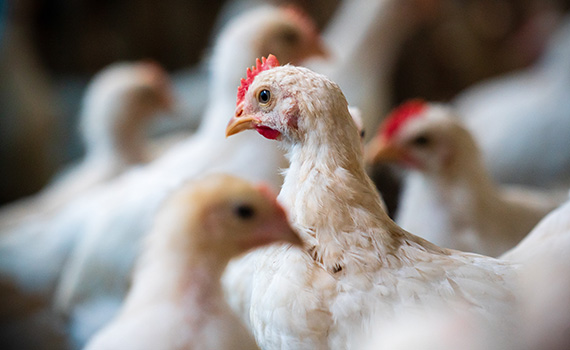Necrotic enteritis and age of litter: What’s the connection in broilers?
Broilers raised on used litter develop better immunity to necrotic enteritis (NE) than birds raised on new litter when challenged early with Clostridium perfringens, Steve Davis, DVM, president of Colorado Quality Research, told Poultry Health Today.
In a recent study he conducted, Davis compared birds on clean litter that were challenged with C. perfringens to birds raised on used litter that were and were not challenged with C. perfringens. He administered the C. perfringens challenge at 17 days of age. Birds on new litter had higher mortality due to NE and poorer weight gain and feed conversion than birds raised on used litter.
Davis said he was surprised that birds in the used-litter group that were challenged with C. perfringens performed best.
The research indicates there’s early local immunity occurring in the gut of the birds exposed to C. perfringens in the first days of their lives, which protects them before they get to the age range that’s typically a C. perfringens or NE problem — starting at 14 to 17 days of age up to 4 weeks of age, Davis said.
He pointed out that some C. perfringens isolates are more pathogenic than others and can lead to NE even when coccidiosis isn’t a predisposing factor; other types of C. perfringens tend to result in NE after coccidiosis causes intestinal damage.
When producers change to new litter, Davis recommends stimulating immunity by top-dressing used litter from farms with a mild C. perfringens. “Get exposure to these chicks as early as possible to some Clostridium perfringens. It definitely has a positive impact on these birds,” he said.
Posted on January 2, 2018
 We’re glad you’re enjoying
We’re glad you’re enjoying










